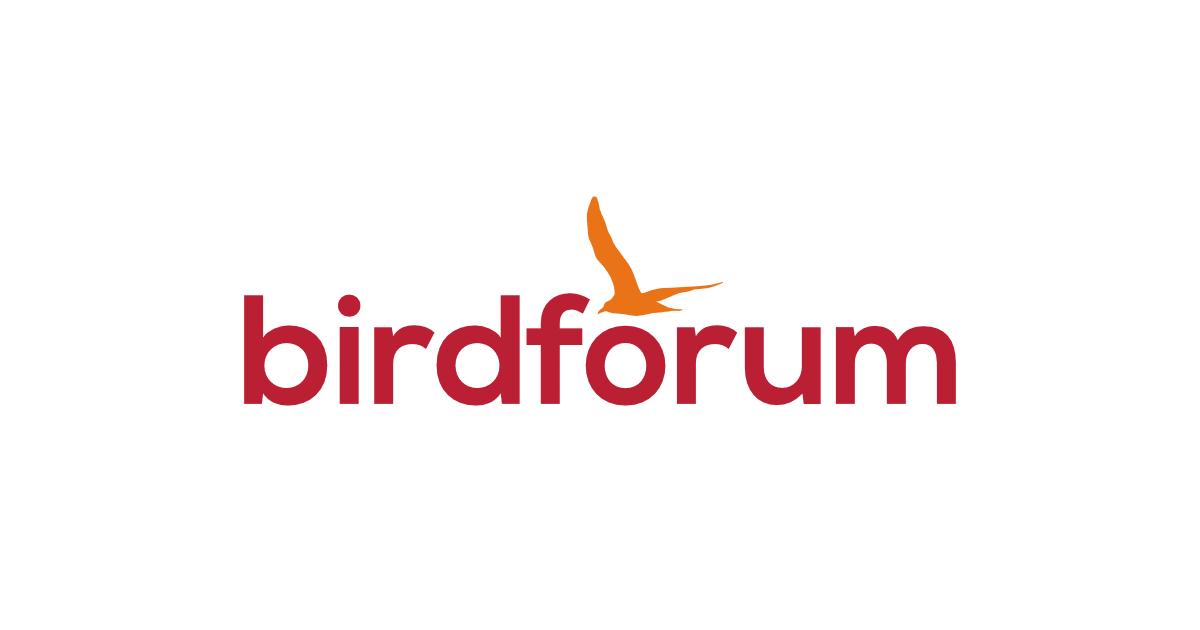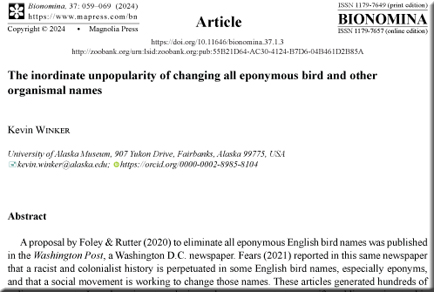A proposal by Foley & Rutter (2020) to eliminate all eponymous English bird names was published in the Washington Post, a Washington D.C. newspaper. Fears (2021) reported in this same newspaper that a racist and colonialist history is perpetuated in some English bird names, especially eponyms, and that a social movement is working to change those names. These articles generated hundreds of online comments. I used sentiment analysis on these comments to quantify public reaction to this proposal and topic. Among the 340 scored comments to Foley & Rutter (2020), negative opinions outnumbered positive ones by 3.36:1. Scoring comments by relative magnitude of their sentiment (-3, -2, -1, 0, 1, 2, 3) yielded an average score of -1.18. These results indicate this proposed action is very unpopular among these readers and causes pronounced divisiveness. The 570 scored comments to the Fears (2021) article were also negatively skewed (2.3:1), though less so (average score -0.58). Politicization and the left-right nature of the issue were rampant in the comments on both articles, indicating that the subject was immediately brought into the culture wars (i.e., conflict between liberal and conservative groups over cultural issues). The divisive nature of the topic was also evident within self-identified left-leaning respondents. These results likely underestimate public negativity to this proposal, because the Washington Post is a left-leaning newspaper. Similarly, Guedes et al. (2023) called for eliminating all eponymous organismal names, and a sentiment analysis of comments about that article was even more starkly negative, showing 90 % of commenters opposed. More data like these are needed. There is considerable risk that broadly de-commemorating eponymous organismal names will create more negative than positive outcomes (e.g., through asymmetric polarization and the culture wars). We must also ask: does excluding people who do not share our views achieve our objective of inclusiveness? When is it acceptable to take away someone’s hard-won knowledge by changing key terms in our shared biodiversity linguistic infrastructure? There are more constructive ways to address diversity, equity and inclusion.









